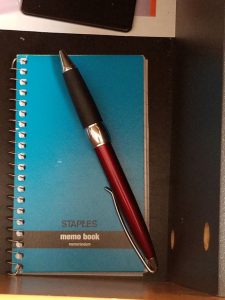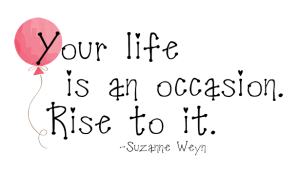Today’s corporate culture places a high value on continuous improvement, which generally means learning how to question existing practices and determine whether something else might be more effective. To gain some experience with it, I am currently doing a beginner-level continuous improvement project that involves gathering and analyzing data on how my coworkers track their time and fill in the weekly timesheet. The objective is to find ways of making the process easier and quicker, which may save the company a little money if there is wasted time that can instead be used to get more work done.
While this is just a small-scale project and won’t bring about any major changes, it’s useful anyway as part of a cultural shift toward questioning why we do things in particular ways. Before I started the project, I never gave any thought to time-tracking and whether the process was as efficient as it could be. I simply jotted down my work hours on a notepad that I keep in my desk drawer, entered those hours on the timesheet at the end of the week, and took for granted that was just the way it was.
This cultural shift goes far beyond the workplace. Because today’s world gives us far more access to information than at any time in history, we’re always encountering facts that suggest our old familiar assumptions are likely to be incomplete. Expanding our worldview takes time and a considerable amount of mental effort. After all, our ancestors evolved in a world where things changed very little from one year to another, so they had no need to work continuously on redrawing their mental maps. The human brain’s decision-making process, still rooted in those primitive origins, relies on subconscious assumptions to a much greater extent than we generally realize.
Whether in the workplace or in the broader culture, it all starts with questioning. Diversity programs, for example, give the participants more familiarity with other cultures, which in turn leads to reflecting on the factual basis of assumptions and developing a better-informed perspective. For some groups, such as the LGBTQ community, questioning is expressly seen as an early step in forming one’s identity—although Q can mean queer, it also stands for questioning. The field of Disability Studies has to do with critically examining society’s assumptions about disability in the light of real people’s experiences. In April of every year, the Autistic community celebrates Autism Acceptance Month, which involves questioning cultural myths about autism and seeking to create a more informed and accepting society.
Because the complexity of the modern world requires so much effort to understand and adjust to what’s going on around us, sometimes it gets overwhelming. We need enough simplicity and comfortable routines to keep our stress levels manageable, but that’s not easy when we always have to deal with something new. Questioning our assumptions, whatever they may be, can get uncomfortable because we’re afraid others will judge us harshly if we have been wrong about anything.
Continuous improvement seeks to streamline the process by using familiar and well-defined methods, while looking at the data objectively and avoiding criticism of ideas as bad or existing workplace practices as wrong. We tend not to take it too personally when these projects identify more efficient ways of doing our work based on analyzing the data. In general, we don’t feel emotionally invested in small workplace details such as whether we use a notepad or something else to track our hours.
When our cultural assumptions are challenged, however, we don’t have a clearly defined process for updating them and are far more likely to get anxious and defensive about being judged. No matter what side we may take in today’s political conflicts, we often feel that our culture and worldview are under attack. Global corporate leaders, by contrast, generally look upon information about cultural differences in the neutral light of the continuous-improvement framework. Like other kinds of information, they’re seen as useful data points to inform efficient practices and higher profits.
I don’t mean to suggest that we should cultivate in our personal lives the emotional detachment of the corporate mindset. On the contrary, it is natural and reasonable that in these stressful times, many of us feel strongly motivated to preserve our cultures and traditions. We can, however, benefit from occasionally reflecting on our personal views and how they relate to society, within a calm, non-confrontational setting such as a discussion group. After all, cultural differences do not necessarily have to result in conflict; there are many possible ways of framing and addressing the issues, and in general, questioning is the first step toward discovering what might be possible.



